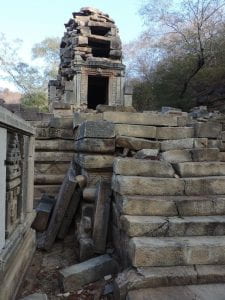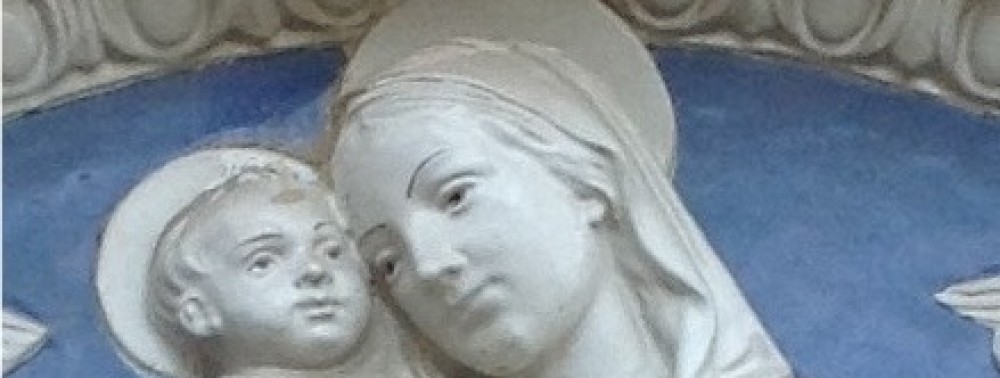Robert Orsi is Grace Craddock Nagle Chair of Catholic Studies at Northwestern University, where he is also Professor of Religious Studies, History, and American Studies. Professor Orsi studies modern and contemporary religion, with a special focus on Catholic practices and ideas, from both historical and ethnographic perspectives. He also researches and writes on theory and method in the study of religion. A member of the American Academy of Arts and Sciences, he has also been a recipient of fellowships from the Fulbright Foundation, the NEH and the Guggenheim Foundation. In 2016-2017, Orsi was a fellow at the Radcliffe Institute for Advanced Studies at Harvard University. His books include, The Madonna of 115th Street: Faith and Community in Italian Harlem, 1880-1959; Thank You, Saint Jude: Women’s Devotion to the Patron Saint of Hopeless Causes; and Between Heaven and Earth: The Religious Worlds People Make and the Scholars Who Study Them. His most recent book is History and Presence, was published in 2016 under the Belknap Imprint of Harvard University Press. He is currently at work on a book called Give Us Boys about the formation of young men at a Jesuit high school in New York City in 1967-1971 as an episode in the broader history of modern Catholic sexuality, social class, and urbanism. This will be published by Columbia University Press in 2022. In academic year 2020-2021, Orsi is a fellow at the University of Notre Dame Institute for Advanced Studies and the Cushwa Center for the Study of American Catholicism. A native of New York City, Orsi is married to the theologian and Luther scholar, Christine Helmer, and has two sons.
UPCOMING & RECENT EVENTS
The 25th Annual Dialogues on Nonviolence, Religion, and Peace: “Religion(s) in the Ruins of the Temple,” Kroc Institute for International Peace Studies, University of Notre Dame, April 20, 2023, 11:00 AM – 1:30 PM
Featuring Robert Orsi, professor of religious studies at Northwestern University. Orsi will discuss the urgency of climate theorists and activists to turn to religion as a source of hope in this time of hastening climate catastrophe. Mostly, they have in mind Indigenous religions. But one prominent commentator, Amitav Ghosh, looks specifically to the Catholic Church as potentially a powerful ally in the struggle to save the planet and all that lives and breathes on it. How reasonable is such a hope, however, after four decades of revelations about the sexual crimes and misdemeanors of clergy and prelates and the official denial of them by church officials? And if it is not reasonable, then what becomes of Ghosh’s hope?
Photo by: Varun Shiv Kapur
Lunch and conversation will follow this lecture in C103, Hesburgh Center for International Studies.
The Dialogues on Nonviolence, Religion, and Peace, which began in 1999, were established through a gift to the Kroc Institute from Mrs. Anne Marie Yoder and her family. Each year, the Kroc Institute invites a leading thinker, writer, scholar, and/or peace advocate to deliver a lecture related to nonviolence, religion, and peace. Following the lecture, audience members join in informal dialogue and discussion with the speaker and with each other.
RECENT PUBLICATIONS & MEDIA
“The Madonna of 115th Street” (review), Stephen Jones, April 4, 2022
 Several days ago, on Halloween no less, out of the blue, I received a message from Stephen P. Jones, whom I have never met, with a review he had just written of my first book, The Madonna of 115th Street, attached.
Several days ago, on Halloween no less, out of the blue, I received a message from Stephen P. Jones, whom I have never met, with a review he had just written of my first book, The Madonna of 115th Street, attached.
As I have said to Mr. Jones in a private note of gratitude, no other review of the book offered as generous and close and discerning a reading as he does. His reading allows the book to breathe again.
Mr. Jones, a violinist who is also a scholar of Daoism, is attentive to all the ambiguities and ambivalence in my account of the domus, which early reviewers missed, convinced I was writing a panegyric.
But my aim, instead, was to give an existentially fine-grained, social historical account of the lived experience of the people who brought their prayers to the Madonna, to take readers deep into the interiority of their lives and the Madonna’s.
Mr. Jones is also exquisitely attentive to questions of the writer’s work, noting shifts in mood and focus. He pays careful such attention to the textures of the work!
It has been 40 years, but now a reader from China, a musician and Daoist, has given the book an illuminating and inviting reading.
I am grateful.
